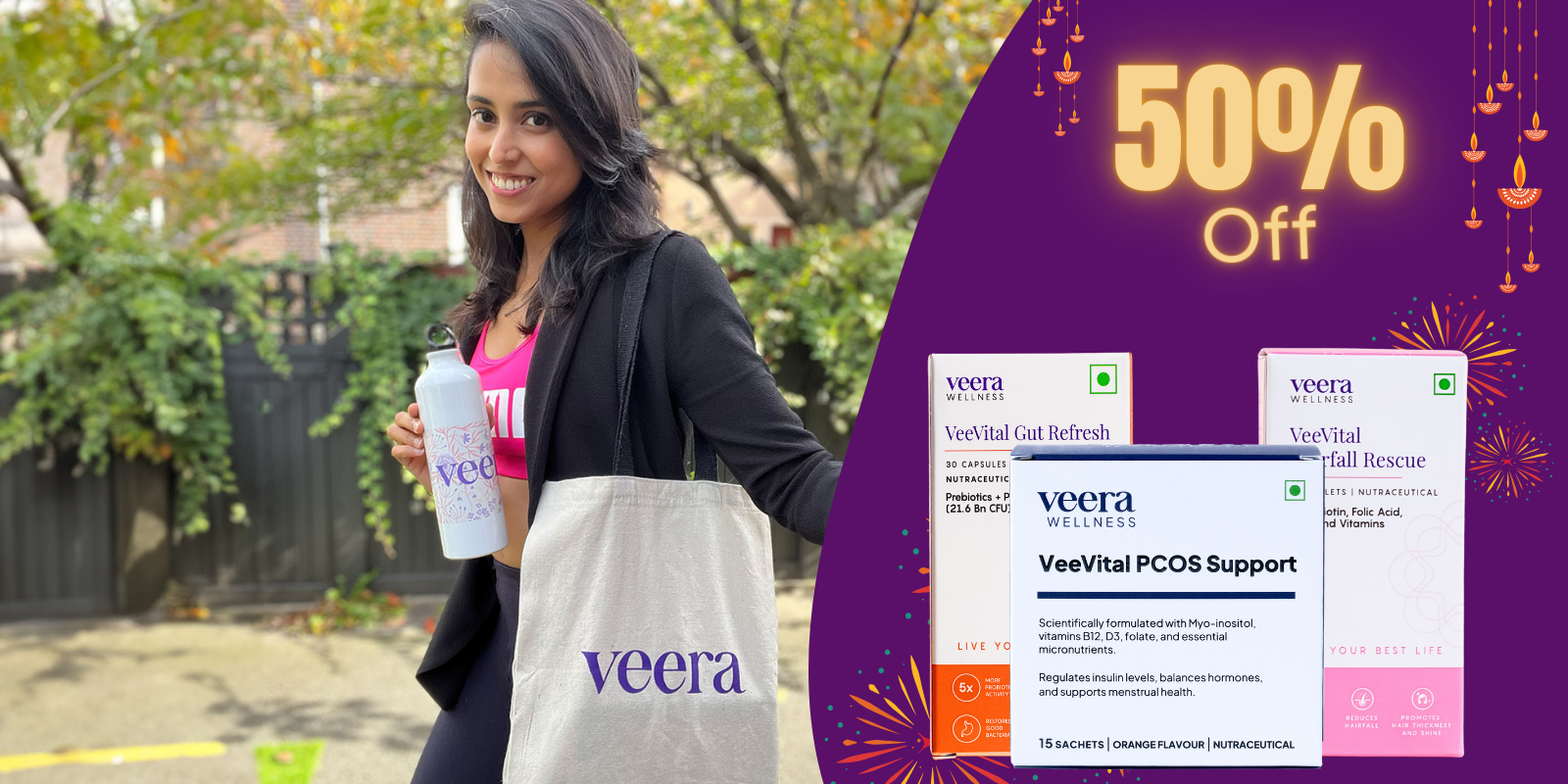Exercise serves as a stressor on the body, particularly with high-intensity workouts, such as high-intensity cardio. High-intensity cardio involves elevating your heart rate to over 75% of your maximum heart rate for at least 10 minutes. Examples of high-intensity exercises include high-intensity steady-state training and high-intensity interval training (HIIT), where vigorous exercise intervals alternate with lower-intensity periods for active recovery. Whether individuals with PCOS should engage in high-intensity exercise is not straightforward, as it depends on various factors, including hormonal responses, overall conditioning, and hydration status. There are both advantages and disadvantages to consider, making it a personalized decision based on individual circumstances.
What Are HIIT Exercises?
HIIT, or High-Intensity Interval Training, is a form of interval exercise comprising multiple rounds alternating between several minutes of high-intensity movements, pushing the heart rate to at least 80% of one’s maximum, and short periods of lower-intensity activities. The concept of interval training dates back to the 1950s, initially introduced as sprint interval training, which involved reaching 100% of the maximum heart rate and was utilized to enhance the performance of elite Olympic athletes. HIIT exercises often rely on body weight as the primary resistance, eliminating the need for extra equipment, and they can be easily performed in limited spaces, making them well-suited for home workouts. HIIT routines can be incorporated into various exercise formats like running, dancing, using rowing machines, stationary bicycles, or stair climbers.
Understanding PCOS and Fitness
Consistent physical activity is crucial for overall well-being, offering many benefits for everyone, with particular significance for individuals with PCOS. Those with PCOS face an elevated risk of obesity and diabetes, primarily due to insulin resistance, making weight loss more challenging. The connection between insufficient physical activity and increased body weight suggests both factors contribute to insulin resistance. Therefore, combining exercise with a nutritious diet is instrumental in achieving weight loss. Additionally, exercise plays a specific role in hormone regulation, helping lower testosterone levels and alleviating PCOS symptoms like excess hair growth and acne.
- Balancing your hormones involves engaging in exercise, which can lower estrogen and insulin levels while boosting endorphin production.
- Enhancing your mood is vital for individuals with PCOS, who may be more susceptible to depression due to hormonal imbalances and PCOS symptoms. Regular exercise facilitates the release of endorphins, commonly known as “happy hormones.”
- Improving autonomic function and inflammatory patterns is supported by research indicating that exercise training enhances autonomic function, regulates involuntary bodily functions, and positively influences inflammatory patterns, crucial for those with elevated chronic inflammation levels associated with PCOS.
- Facilitating weight loss, which can be challenging for individuals with PCOS, is achievable through daily exercise aligned with a healthy eating plan.
- Enhancing sleep quality is another benefit of exercise, as it promotes restful sleep. Individuals with PCOS are at a higher risk of sleep apnea and snoring, issues exacerbated by obesity.
- Reducing the risk of diabetes is an additional advantage of exercise, particularly cardio, which improves insulin responsiveness.
- Improving mood, reiterated for its significance, involves regular exercise releasing endorphins, contributing to emotional well-being for individuals with PCOS facing hormonal imbalances and associated symptoms.
Best Workouts for PCOS
Cardiovascular Workouts:
Benefits: Reducing insulin resistance, improving mood, and aiding weight loss
A steady-state cardiovascular workout maintains consistent exercise intensity throughout, encompassing activities such as walking, running, swimming, cycling, and hiking. Just 30 minutes a day can be beneficial for women with PCOS, as it reduces insulin resistance, enhances mood, and supports weight loss. This type of exercise increases insulin sensitivity, preventing cholesterol deposition effects in arteries, which could lead to conditions like high blood pressure, heart disease, and type-2 diabetes. Moreover, steady-state cardiovascular workouts contribute to elevated mood and facilitate weight loss.
HIIT Workouts:
Benefits: Burning fat, increasing cardiovascular fitness
High-intensity interval Training (HIIT) involves short bursts of very-high-intensity cardio exercises followed by rest periods. For instance, a minute of running followed by a minute or two of jogging or walking, totaling 10 minutes in a HIIT workout. Short cardio bursts in HIIT are particularly advantageous for women with PCOS, offering rapid improvements in cardiovascular fitness. HIIT efficiently burns fat, enhances insulin resistance, and creates an afterburn effect, where the body continues burning fat even post-exercise. Studies, including those specific to women with PCOS, highlight its efficacy in improving insulin resistance and reducing excess testosterone, ultimately alleviating PCOS symptoms.
Strength Training:
Benefits: Increasing metabolic rate, reducing insulin resistance, building muscle, and decreasing body fat
Strength training, utilizing body weight, resistance bands, or weights, is effective in increasing muscle, reducing insulin resistance, and altering body composition. Research emphasizes the efficacy of resistance training in reducing testosterone levels in women with PCOS. Basic exercises like push-ups and tricep dips not only build muscle and upper body strength but also improve insulin function, leading to calorie burning even after the workout.
Mind-Body Exercises:
Benefits: Burning calories, promoting relaxation, improving mood
Women with PCOS often experience depression, stress, and anxiety due to their symptoms. Mind-body exercises like yoga, tai chi, and pilates offer the dual benefit of burning calories while promoting mental and physical relaxation. These exercises help alleviate stress, contributing to mood improvement and aiding weight loss when combined with a healthy diet and regular cardiovascular exercise.
Workouts To Avoid for PCOS
Based on initial research, there isn’t a singular “worst” type of exercise; however, studies indicate that excessive exercise and overtraining can lead to irregular periods, primarily due to an elevation in cortisol levels disrupting hormonal balance. It is advisable to adhere to a manageable exercise routine, incorporating enjoyable activities and classes, allowing for rest days, and integrating gentle mind-body exercises. As a crucial complement, this approach should align with a diet rich in whole foods, minimal sugar, healthy fats, and low glycemic-index carbohydrates.
Sign Up To Get Individualised Workouts To Fight PCOS
Engaging in excessively intense exercise can lead to irregularities in the menstrual cycle. It’s essential to establish a well-rounded exercise regimen, incorporating both higher and lower-intensity days along with designated rest days. In instances of PCOS fatigue, opting for gentle exercise can often prove revitalizing rather than avoiding physical activity altogether. Exercise holds significant potential for women with PCOS, and striving for a combination of the most beneficial exercises is key. Veera Health fitness experts believe that when you comprehend how and why specific exercises contribute to your well-being, it becomes a motivating factor for continued commitment.
Learn More With Veera
Promoting a healthy lifestyle is vital for holistic wellness and disease prevention. Focus on increasing fiber intake, staying hydrated, incorporating regular exercise, managing stress effectively, maintaining good hygiene habits, prioritizing sufficient sleep, and avoiding smoking, excessive alcohol consumption, and processed foods. Following these guidelines supports the improvement of physical, mental, and emotional well-being, with the guidance of our experienced gynecologists at Veera Health.




















